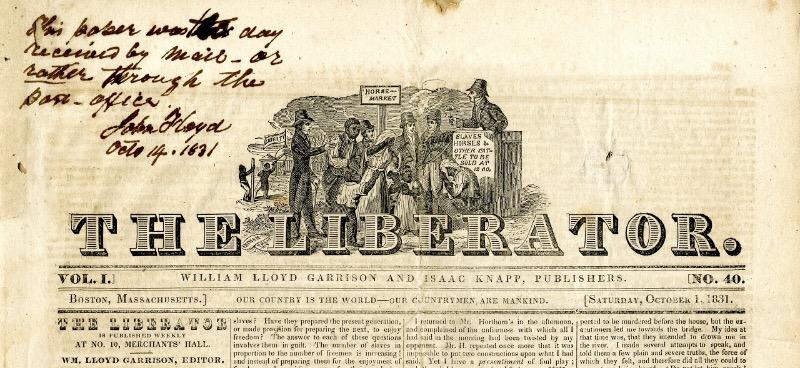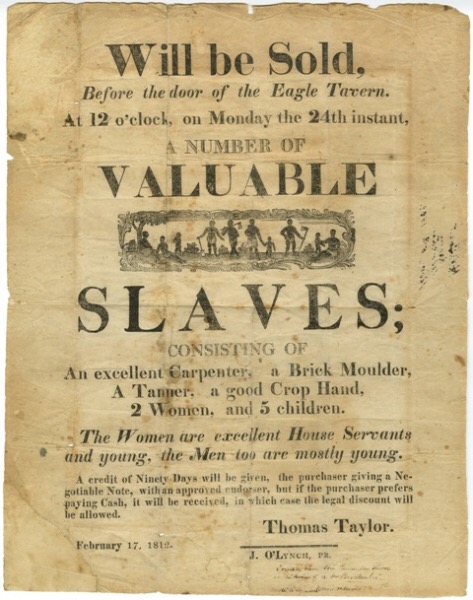Virginia Untold: The African American Narrative Digital Collection
Celebrate Black History Month by reading previously untold narratives and helping to uncover some yourself.

Living in Richmond, history is all around you. But the stories of some Virginians are not always told, or easy to find, especially those of African Americans from the 17th through 19th centuries. People like:
Hester Jane Carr, a free African American who was tricked into leaving her home in New York City and sold as a slave in Petersburg. Or Dennis Holt, a free African American living in Campbell County who petitioned to be re-enslaved so that he could remain with his enslaved wife.
A new digital collection of records from the Library of Virginia tells these stories and those of other pre-Civil War African Americans in Virginia. Taken directly from primary source materials, Virginia Untold: The African American Narrative Digital Collection, is a never-before-seen grouping. In the making for two years, it brings together related documents in one place and tells us something new about history. “This is a narrative that has been ignored by the mainstream community,” says Sonya Coleman, Digital Collections Specialist at the Library of Virginia. “There are no better people to tell it then those who were there.”
Types of documents include coroners’ inquisitions, deeds of emancipation, petitions to remain in the commonwealth, petitions for re-enslavement, and freedom suits. In the latter, if a person could prove they were descended from a free or wrongfully enslaved person, they might be able to gain their own freedom through the courts. In one such story in 1820, Rachel Findley won freedom for herself and more than 35 of her descendants in a Powhatan County court in a lawsuit dating back to 1773 by proving she had a Native American ancestor of the Catawba Nation.

The goal is to unearth African American stories and history and make them visible and accessible in ways they have never been before. These types of reconstructions can help genealogists, who have a tough time researching African American ancestry. “They hit a road block at the Civil War,” notes Coleman. “These documents just don’t exist anywhere else.” Now, everyday researchers and historians alike can find names, towns, ancestors, and more.
Several record types found in Virginia Untold have been added through the Library of Virginia’s crowd-sourcing project Making History: Transcribe. By reading documents and turning them into electronic form, the public makes that data accessible online: searchable, and in full-text. As this new grouping expands, it will complement and connect to the other digital collections already available–helping to connect the dots of history. The library is hoping to accept public feedback on the project as well–how people are using it, what’s missing, and how to make it function better.
The public can help transcribe even more documents that will be added to Virginia Untold and their other collections. The library holds a public volunteer project monthly through HandsOn Greater Richmond on the last Saturday of the month. If you can’t wait to get started, you can transcribe at home as well. Find others who are doing this work with the hashtag #VaUntold.
The Library of Virginia is hosting a special transcribe-a-thon for Virginia Untold this week, if reading, learning, and typing what you read and learn are your thing.
Library of Virginia’s Transcribe-a-thon of Documents from the African American Narrative
- Tuesday, February 16th, 2016 • 3:00 – 4:30 PM
- John Tyler Community College, Midlothian Campus, 800 Charter Colony Parkway, Midlothian (Hamel Hall, Library, H202K)
- Free and open to the public. No registration necessary.
— ∮∮∮ —
Learn more about what how you can use the Library of Virginia to your advantage (with their blessing!) by reading “Who you are and where you came from: The Library of Virginia knows!”.
-
Recommend this
on Facebook -

Report an error
-

Subscribe to our
Weekly Digest




There are no reader comments. Add yours.